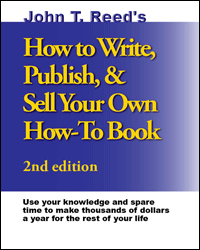One of the new economic and social buzzwords is “frugal” – there are frugal blogs, frugal people, frugal lifestyles. Everyone is frugal these days ranging from people who have always been frugal their whole lives to people who have no idea what frugal means but just want to be part of the crowd.
One of the things that I wonder about is what is the definition of frugal? I don’t consider myself to be frugal – I like the term “financially responsible”. The problem with a term like “frugal” is that it is fairly general and can be interpreted in so many different ways.
Here are a few possibilities that I suspect some people use and my thoughts:
I spend less than I used to (ie I’ve cut back)
I don’t see how this qualifies anyone as frugal – someone who was very spendthrift and has reduced their spending could very well still be a spendthrift. On the other hand someone who is extremely frugal (like my Mother-in-law) could increase their spending and still be very frugal.
I spend as little as possible
I would think this sounds like a good criteria for frugality – although not the only one. The problem of course is the application – for some “spend as little as possible” is taken literally and there is nothing in their lives that doesn’t get evaluated for value. That person might do thing like try to live without a car or with only one car (for a family). For others – “spend as little as possible” is applied to the lifestyle that they choose without regard to cost. That family might chose to have 2 cars for convenience – the reduced spending might apply to the options included with the car or even the type of car – but the 2 car variable is not up for grabs.
I expend effort and time to be frugal
This one sounds pretty good – it’s always hard to ignore a good effort. One of the problems with this approach is that ‘frugal effort’ can be applied to fairly small budget items and savings on larger items might not be maximized which is not very frugal in my opinion.
Here are some examples of ‘frugal effort’ that I’ve come up with just to clarify what I’m talking about:
- Preparing your own meals. Most people do this, but the test is how often do you eat out?
- Creating basic goods from scratch. Making your own laundry detergent is only frugal if you have a lot more time than money.
- Comparison shopping/coupons. This one may be obvious but it takes time. This has to applied intelligently – saving 25 cents on soup is irrelevant compared to the money you can save on a car.
I save a lot
Frugal or not – a high savings rate is rarely a bad thing. Like some of the other examples – this one is relative – someone who makes $10 per hour and can save is almost undoubtedly frugal. Of course if that person is a student living with their parents, then maybe not so frugal. If that person make $250k per year after tax and saves $50k per year – are they still frugal? I’m thinking not since they spent $200k in one year!
What is your definition of frugal?
Enough of my thoughts – do you have any “definitions” or criteria for frugality that people should meet before they can wear the frugal badge of honour?
